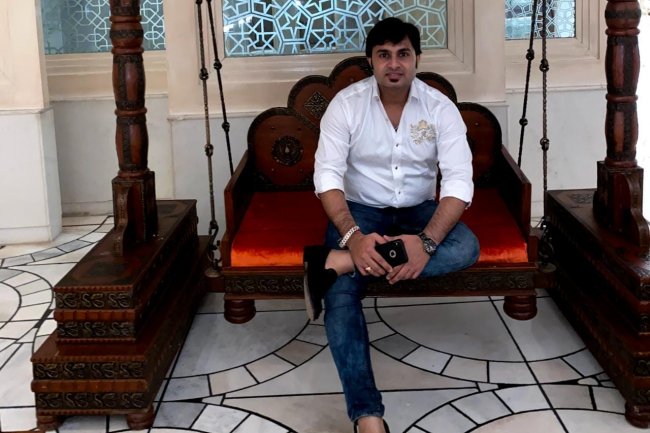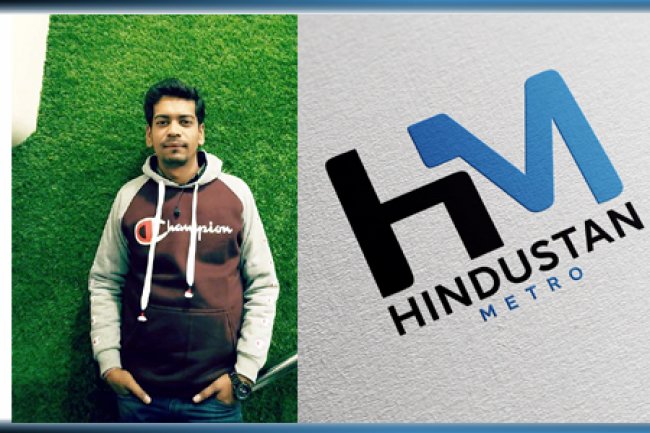Molding the Future's Most Innovative Thinkers and Doers
Our children are our hope for the future. Aren't we, as parents, educators, and a community, working tirelessly to ensure that our children have access to the finest opportunities possible, laying the path for a happy, successful future and making the world a better place for the next generation?

When it comes to the education of our children, we make it a priority to look for the very best schools and universities. Even though they are highly educated, Indian students at both the national and international level are not prepared for the workforce, despite the fact that thousands of engineers, doctors, and other professionals are produced each year. This is a truth.
To be work ready implies to possess a number of essential abilities that are required of people for entry level positions. These skills vary depending on the type of job. Some of these are self-management, cooperation and collaboration, critical and creative thinking, professionalism, learning skills, communication skills, critical thinking, and creative thinking, as well as self-management. In contrast, the current education system, which is largely focused on academics and is characterised by its monotony, does not discuss or deal with the development of these non-academic talents.
The acquisition of academic information is not the end goal of education; rather, it is the development of practical skills. Therefore, what is required of schools today is a teaching strategy and curriculum that are both more cutting edge and original. There is a significant divide between the goals of the current educational system and being prepared for work and life in general, and this divide needs to be closed.
STEM education is a form of schooling in which students study subjects such as science, technology, engineering, and mathematics in accordance with their individual preferences for learning and areas of academic interest. They get an understanding of the scientific methods that can be employed, as well as how to think critically and apply that knowledge to real-world issues.
The combination of the four subfields that make up STEM is an essential component in developing a child's capacity for imaginative and analytical thought, as well as increasing their awareness of the world around them. They are able to adapt to working with high-tech advances, and the process of learning mathematics helps them improve their problem-solving and application skills, which ultimately makes them more analytical and precise decision makers.
Instead of the muted and passive style of a teacher standing in front of the students and transferring knowledge in a one-way road, the kids experiment, cooperate, and communicate with one another, which makes them the producers of technology rather than just learning how to be a user of it. They are thus given an introduction to the interesting cycle of learning through experience.
Consequently, this will provide the children with a platform for their general growth, which will in turn lead to them playing crucial roles in the development of the country in a variety of different areas.
A NexGen firm, STEM Cadets teaches valuable life skills to the youth of today through a cutting-edge educational platform that is designed with the needs of children in mind. The organisation has designed a variety of workshops for youngsters to participate in so that they can get information via practical experience that will enable them to put what they learn into practise.
In different regions of the world, different instructional approaches are being utilised to teach STEM subjects to students. In India, some businesses are relying solely on robotics and computer programming.
Along with robotics and coding, the cutting-edge technologies and programmes that STEM Cadets offers, such as basic electronics, IoT (Internet of Things), 3D printing, drones, app inventor, and innovation labs, pique the kids' interest and provoke them to enter the experiential learning cycle.
The students in grades 1 through 12, sometimes known as the K12 demographic, as well as undergraduates make up the target audience. In the STEAM (Science, Technology, Engineering, Arts, and Mathematics) domains, the students are guided to investigate the areas in which they have the most interest. The group has developed programmes that are sustainable, inclusive, and egalitarian by using activities that are demanding, thought-provoking, and exciting in order to pique children's curiosity. The children engage in conversation with the professionals, gain practical experience dealing with real-world problems, and are challenged to devise answers on their own; as a result, they cultivate a scientific temperament and a critical problem-solving mindset in an integrated manner.
According to Mr. Vipin V. K., the founder and CEO of the company, the primary emphasis is placed on experiential learning, also known as learning via experience. He holds firmly to the conviction that "Students should be given the opportunity to Create Technology in addition to learning how to Use it."
In 2019, Bishop Pereira Memorial School, which is located in the vicinity of Mangalapuram in Thiruvananthapuram, Kerala, and has approximately 1200 pupils enrolled, became the site for the research and development of STEM Cadets. The company STEM Cadets was established in August 2022 as a direct consequence of the comprehensive research that was conducted over a period of three years. At the moment, they are forming partnerships with educational institutions all over Kerala and Karnataka. They have entered into a strategic partnership with an educational technology company known as EduBrisk Knowledge Solutions. This company employs an advanced learning management system Engine to deliver the content of the curriculum. Additionally, this company has developed a brain-friendly learning platform in which STEM ideas are integrated with the curriculum.
A wide variety of STEM workshops have been presented at a variety of schools. Paradise Public School in Varkala played host to the first of these events, which was titled "One Day for My Future." The purpose of this activity is to demonstrate to the children that "There is a better way to learn science and math." In a manner very similar, hundreds of other initiatives have been conceived with the intention of assisting students in the development of their abilities and personalities.
Mr. Vipin VK, a graduate in Mechanical Engineering who received his M.Tech. in Materials Engineering from the esteemed IISc in Bangalore, is the Founder and CEO of STEM Cadets. He has been actively involved in the development of educational technology for 35 schools located all throughout India and the Middle East, and he has contributed significantly to the creation of over 300 different STEM initiatives. Recently received the Young Achievers' Award – 2022, which was bestowed to them by the renowned INDIAN ACHIEVERS' AWARD. Mr. Krishnadas Saiju, Co-Founder and Chief Financial Officer, is a graduate of The National University of Advanced Legal Studies with degrees in Bachelor of Arts in Law and Bachelor of Laws with Honors.
What's Your Reaction?




















